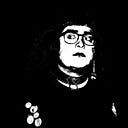Mutant Ethics
Deleuze’s Critique of Ideal Perfection and Institutional Obligation
[This is the third piece of this 4-part series on Gilles Deleuze which were originally written for Keith Faulkner’s 2022 seminar on Deleuze]
In her book The Sources of Normativity, Christine M. Korsgaard introduces the subject of ethics as a contention with the sources and grounds for the norms that ethics prescribes. And in the introduction, she distinguishes between two tendencies that set out ethical pursuits in both the ancient Greek world and in European modernity: perfection and obedience (Korsgaard, 1996, 1–5). Whereas in thinkers like Plato and Aristotle we have an ostensive example of moral perfection through the attempts to embody the Ideal and the attempts of virtue to fulfill the potential of the moral agent; modernity is characterized by Immanuel Kant’s categorical imperative where principles are set out in such a way that they are universalizable to the extent that we cannot help but obey the law that we have instituted for ourselves.
This way of breaking down two major paradigms in conceiving of normative grounds for postulating principles help us identify Gilles Deleuze’s targets in postulating what I will refer to as a mutant ethics. On the one hand, the figures of the Ideal and perfection are challenged by Deleuze in so far as each of them judges the becoming of reality either by the measure of the Ideal of which reality is merely a bad copy or by the fulfillment of capacities that otherwise go unrealized — these accounts of ideal perfection in ethics merely react to the disfigurations or mutations of reality by the transcendental standard that they take for granted, for example in Aristotle’s regard for vice as deformation or a bad shape and Plato’s account of the sensible world as merely a shadow of the Ideal. On the other hand, obedience of the categorical imperative is challenged by Deleuze insofar as it relies on the presumption of a transcendental I as a figuration of an outside audience that will judge the acts that we set out as principles — specifically speaking, in Difference and Repetition, Deleuze reframes Kant’s categorical imperative (“act in such a way that you would have your act become a universal law”) through Nietzsche’s eternal return to affirm the inmanence of ethics rather than its transcendence (“act in such a way that you would also will the eternal return of that act”) (Deleuze, 1994, 7). For Deleuze, the concern is not so much to institute universal norms by virtue of pure practical reason, as Deleuze seeks to choose an immanent mode of existence that is characterized by its active affectionate intensities in instances of the life that it affirms.
Ultimately, the common thread between perfection and obedience is their reliance on the transcendental which Deleuze seeks to undermine through his philosophy of immanence. Certainly, Deleuze refers back to Spinoza’s Ethics to draw from its fifth book where it discusses the test of existence where our active passions are sought to be affirmed over and against the passive passions that entangle themselves in with the outside world where they lose their very power to exist in the capacity to be affected in its eternal power (Deleuze, 2005, 306–307 and 316–317). And as it was just mentioned, Deleuze draws the affirmation of a way of being regardless of whether it is measured by transcendental judgment from Nietzsche. But Deleuze’s own import is what I refer to as mutant ethics.
The figure of the mutant recurs throughout Deleuze’s work, and it particularly gains some treatment in A Thousand Plateaus with Felix Guattari. The crux of this ethic is its creative affirmation as opposed to the fixations of demarcating judgments that create nothing in themselves. One way in which Deleuze and Guattari refer to the mutant is in terms of the quantum flow as opposed to the segmented line:
A mutant flow always implies something tending to elude or escape the codes; quanta are precisely signs or degrees of deterritorialization in the decoded flow. The rigid line, on the other hand, implies an overcoding that substitutes itself for the faltering codes; its segments are like reterritorializations on the overcoding or overcoded line (Deleuze and Guattari, 2005, 219)
Whereas the mutant flow of quanta is described as eluding the limits and restrictions that are set out upon it in a creative fashion, the segmented line makes up for its faults by doubling down on its own rigidity — in the terms of ethics, the segmented line reflects the demarcative efforts of transcendental approaches to ethical normativity that do not question the perfection of the Idea, the potential to realize a perfected form, or the law which one is obliged to act upon even when these Ideas, formations, and laws fail no matter how strict their institution becomes. In short, non-mutant ethics are a mode of capture of the virtuality of ethics. The mutant immanently usurps the transcendental, deterritorializes the lines of normative judgments, and it offers only the promise of singular virtualities as these intensities intensify to the point of their becoming imperceptible by any measure that standardizes them and seeks to arrest them into capture (Deleuze and Guattari, 2005, 171).
References and Citations:
Deleuze, Gilles. Difference and Repetition. Trans. Paul Patton. New York: Columbia University Press, 1994.
— — — Expressionism in Philosophy: Spinoza. Trans. Martin Jounhin. New York: Zone Books, 2005.
Deleuze, Gilles, and Félix Guattari. A Thousand Plateaus: Capitalism and Schizophrenia. Trans. Brian Massumi. Minneapolis: University of Minnesota, 2002.
Korsgaard, Christine et al. The Sources of Normativity. Cambridge: Cambridge University Press, 1996
